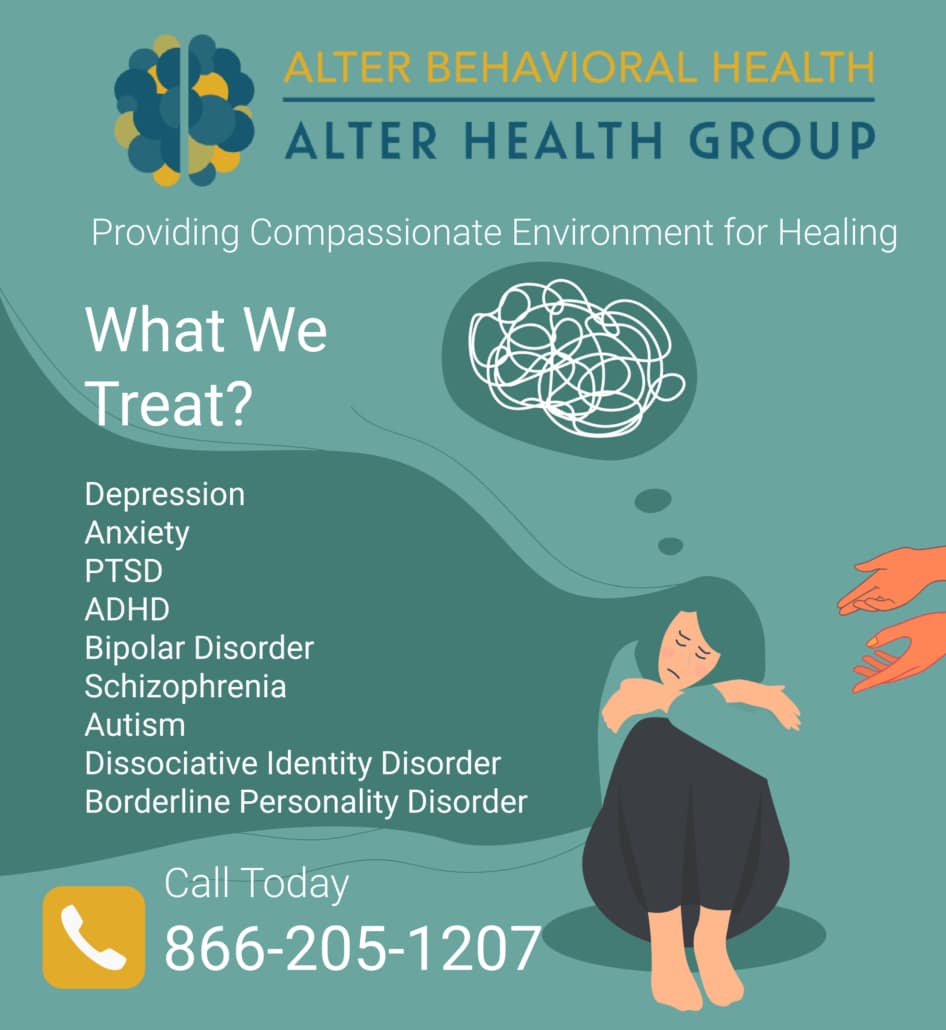Unless you seek proper treatment, mental illness has the capacity to sap your motivation and suck the joy from the things that usually make you happy. Despite the devastating effects of mental illness, these conditions are often invisible. That is, people who are deeply depressed or anxious have learned to pass things off as normal and deal with misery. While professional diagnosis is the only certain way to know if someone is mentally ill, you can still keep an eye out for the following warning signs.
Signs That Someone is Mentally Ill
Mental illness is complex and can evolve out of a mixture of genetics and life circumstance. It’s possible that you’re close to someone who’s unknowingly mentally ill, but you might also see someone in the process of developing a mental illness.
1. Decline in Functioning
A drop in functioning is one of the most consistent signs of mental illness, for the simple reason that many things can cause it. Anxiety and depression can reduce executive function directly and lead to poor performance at school, work, or elsewhere. Other types of mental illnesses can worsen your quality of life to the point that maintaining normal functioning becomes impossible.
2. Chronic Irritability, Sadness, or Stress
While everyone suffers a poor mood now and then, mental illness takes this to a much more drastic extent. It’s not normal for someone to constantly seem to be upset, sad, or otherwise on edge. While such enduring poor mood isn’t concrete proof of mental illness, it is a considerable warning factor.
3. Changes in Eating Habits
Some mental illnesses, such as eating disorders revolve around sharp, unhealthy changes in eating habits. Most mental illnesses can prompt drastic changes in eating habits, though, as someone loses interest in eating or turns to food as a coping mechanism.
4. Sudden Disruption in Sleep
When someone’s sleep pattern is thrown out of order, there’s generally a cause. There are many ways that mental illness can disrupt normal sleep, such as making it difficult to sleep or making the next day seem unbearable. Conversely, someone might begin sleeping too much and struggle to leave their bed during a depressive episode.
5. Intense, Inconsistent Moods
Severe mood swings can be a direct or indirect consequence of mental illness. For instance, bipolar disorder causes the afflicted to waver between crushing depression and uncontrollable mania. Likewise, many mental illnesses can come in sudden episodes that disrupt the normal behavior and feeling of a person.
6. Social Withdrawal
Mental illness often makes socializing seem excessively challenging or unrewarding. Additionally, depression and other conditions can make it hard to fulfill the basic self-care that’s a prerequisite to spending time with others. When you see someone withdraw from their friends and family, mental illness may be the culprit.
Recognizing Patterns in the Mentally Ill
Mental illness can manifest in a multitude of ways, and its symptoms are sometimes mistaken for mere personality quirks or transient phases of life. As you engage with individuals in various life situations, it’s essential to recognize certain patterns that can indicate someone is mentally ill. One of the most revealing signs is a decline in functioning. This may manifest as difficulty concentrating, trouble making decisions, or the inability to handle daily tasks. This is not simply about having an occasional bad day; it’s about observing a consistent struggle in maintaining normalcy.
Furthermore, drastic mood shifts are another red flag. While everyone experiences mood fluctuations, mentally ill individuals often grapple with extreme mood swings. These intense emotions can range from profound sadness to heightened irritability. It’s more than just being moody; it’s a battle with emotions that seem to dominate one’s entire being, affecting their decision-making, relationships, and daily life. Recognizing these patterns can lead to early intervention and potentially mitigate the severe repercussions of untreated mental illness.
Physical Manifestations in the Mentally Ill
It’s a common misconception that mental illness only affects the mind. In reality, the physical manifestations of being mentally ill can be as telling as the emotional or cognitive ones. Changes in eating habits are a prevalent sign. This doesn’t only refer to the extremes like anorexia or bulimia. Some mentally ill individuals might experience a diminished appetite due to anxiety or depression, while others might overeat as a way of self-soothing or coping with their emotions.
Sleep disruptions, too, can be quite revealing. The human body craves routine, especially when it comes to sleep. When someone is either constantly oversleeping or barely sleeping at all, it’s a potential indicator of an underlying mental condition. It could be insomnia triggered by anxiety, or excessive sleep brought on by depressive episodes. It’s crucial to remember that while these symptoms might seem purely physical, they can be deeply intertwined with the mental state of an individual and are often indicative of someone who might be mentally ill.
How Can We Help? Alter Behavioral Health Mental Health Treatments in California
Alter Behavioral Health is a primary care facility specializing in adult autism and the most common mental health disorders. We understand the financial challenges associated with seeking quality mental health care, which is why we are proud to accept Cigna therapy coverage, among other insurance providers, ensuring our patients can access the care they need without undue financial strain. If you or someone you love needs mental health support that they aren’t receiving, get in touch with us for compassionate, evidence-based care. Please call us today.







